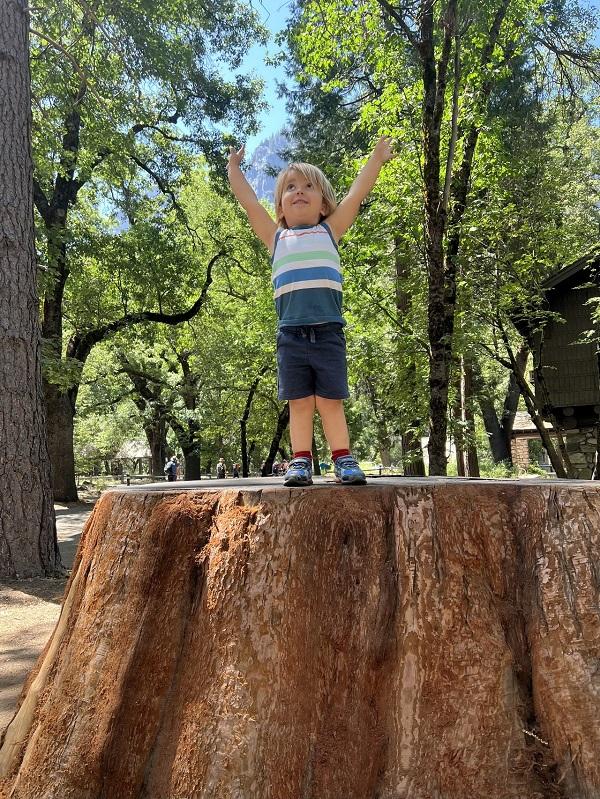
Rambles About Nature: Growing Kids in the Outdoors
Recently, my youngest kid had a yearly checkup. While at the appointment, the doctor ticked off all the markers of growth. Height and weight were measured, and other developmental milestones assessed and discussed. Everything was normal, he was growing and developing as he should.
The day after the appointment we headed out for a week of camping in Yosemite. We joined the families we go with each year. Each with kids just a little bit older than my youngest. Last year was full of falls and crashes as he tried to keep up with older kids who were more agile and confident while playing near the campsite. There was always a trip over a tree branch, a stumble on a rock, or a slip on loose soil. This year was different. He was a little bit faster and a little bit stronger. But the biggest growth was just in his comfort level outdoors. He was more at ease. He was more confident, less afraid. Between this year and last year, he has not just been hiking more but also spending more unstructured time outdoors. There have been many more early mornings of digging in the dirt, more afternoons watching wildlife, and in general, being more curious about the environment.
In fact, the “growth” that I noticed most was not demonstrated in his agility, strength, or speed but in the questions he asked while exploring. While sitting on the shore of the Merced River, he asked me where the water came from, and I gave him a three-year old answer (my mistake). I told him the river is full of water that is running off the mountains and rocks around us. I pointed to Yosemite Falls as an example. This was not the answer he was looking for. He already knew that. He wanted to know where the water started, the source. This would involve a discussion of watersheds and the water cycle, and not at a three-year-old level. He had not just grown taller and stronger over the last year; he has also grown in his connection to nature – another developmental milestone.
When I returned to work from Yosemite, The Nature Reserve’s summer day camp was in full swing. Each day at camp is full of well-planned activities that are fun and engaging. There are crafts, games, and hikes, but my favorite part of camp is the last 45 minutes of each day which is completely unplanned. This is unstructured but supervised time in nature. How campers choose to interact with nature is up to them. Some build forts, some play in the mud kitchen, some climb on rocks and logs, and some look for lizards, frogs, and bugs. And some just sit under an oak tree to talk with a friend or read a book.
This is where campers grow and flourish in the outdoors. We just give them opportunity and physical space. It is where they learn to how to negotiate a slippery log as well as how to negotiate who gets to go first across the log. It is a time for getting muddy and making messes and being ok with that. It is a space to engineer a stick fort through trial and error, to make mistakes and try again. Each stumble, each slip, each discovery is an opportunity for growth. In Richard Louv’s book, Last Child in the Woods: Saving our kids from Nature Deficit Disorder, Louv says “The physical exercise and emotional stretching that children enjoy in unorganized play is more varied and less time-bound than is found in organized sports. Playtime—especially unstructured, imaginative, exploratory play—is increasingly recognized as an essential component of wholesome child development.” This is why we plan for unplanned time in nature during camp. We believe that nature is a piece of that “whole” needed in “wholesome child development.”
Growing kids outdoors, is a lot like growing plants in the outdoors. Just give them a little dirt, water, sunshine, and space to flourish. They will take care of the rest.
Plans and reservations have already been made for next year’s trip to Yosemite. As a lover of the outdoors, I cannot wait to be back in the park, exploring new and familiar places. As a parent, I cannot wait to see the growth
